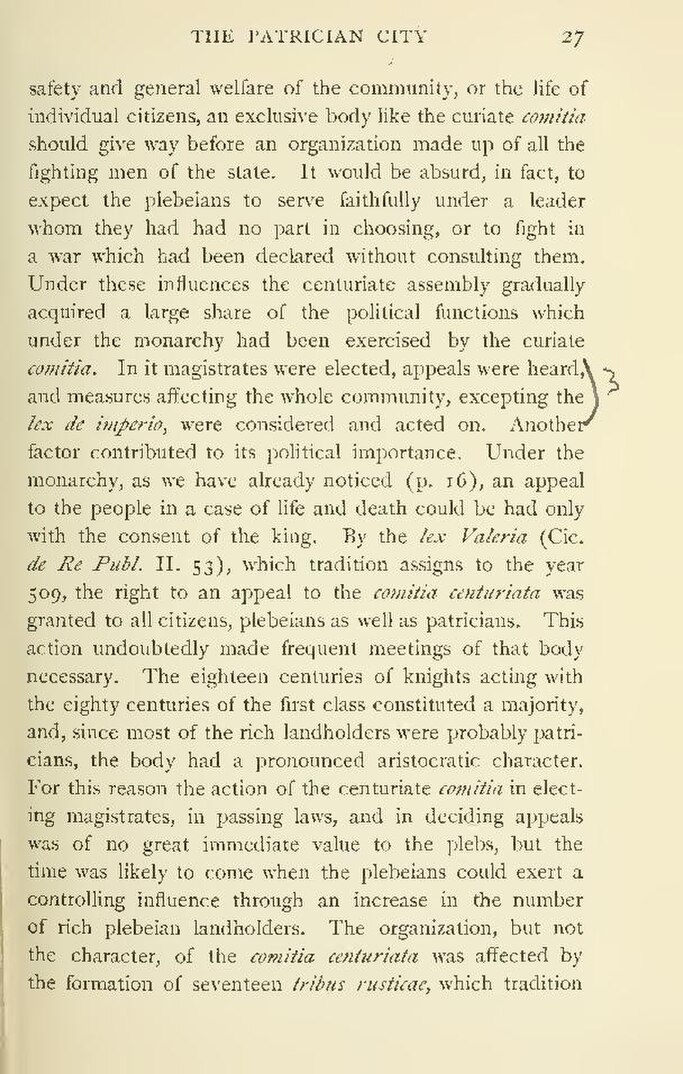safety and general welfare of the community, or the life of individual citizens, an exclusive body like the curiate comitia should give way before an organization made up of all the fighting men of the state. It would be absurd, in fact, to expect the plebeians to serve faithfully under a leader whom they had no part in choosing, or to fight in a war which had been declared without consulting them. Under these influences the centuriate assembly gradually acquired a large share of the political functions which under the monarchy had been exercised by the curiate comitia. In the magistrates were elected, appeals were heard, and measures affecting the whole community, excepting the lex de imperio, were considered and acted on. Another factor contributed to its political importance. Under the monarchy, as we have already noticed (p. 16), an appeal to the people in a case of life and death could be had only with the consent of the king. By the lex Valeria (Cic. de Re Publ. II. 53), which tradition assigns to the year 509, the right to an appeal to the comitia centuriata was granted to all citizens, plebeians as well as patriciaisn. This action undoubtedly made frequent meetings of that body necessary. The eighteen centuries of knights acting with the eighty centuries of the first class constituted a majority, and, since most of the rich landholders were probably patricians, the body had a pronounced aristocratic character. For this reason the action of the centuriate comitia in electing magistrates, in passing laws, and in deciding appeals was of no great immediate value to the plebs, but the time was likely to come when the plebeians could exert a controlling influence through an increase in the number of rich plebeian landholders. The organization, but not the character, of the comitia centuriata was affected by the formation of seventeen tribus rusticae, which tradition
